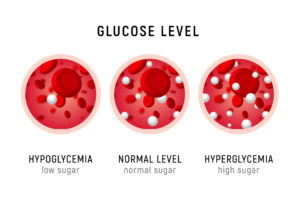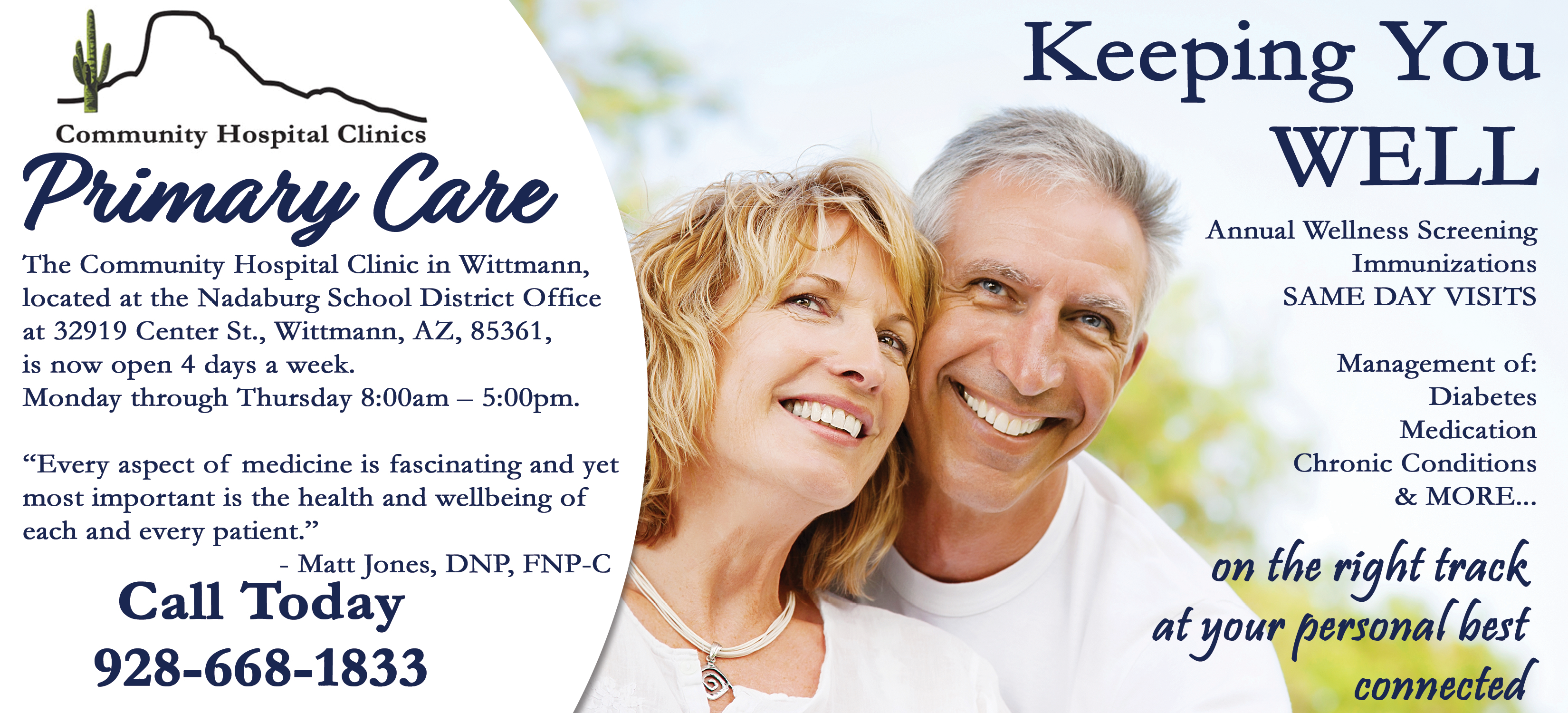Getting the most out of your primary care provider appointment is important. Asking the right questions can help you do just that. We recently caught up with Matt Jones, DNP, FNP-C the provider at Wickenburg Community Clinics in Wittmann on what he thought were some of the most important questions to ask.
1. What wellness tests should I have?
Having a baseline of tests such as fasting blood sugar, cholesterol, liver function, blood pressure and kidney function plus your family medical history or any pervious medical tests; can help your primary care provider help you enjoy a healthier, more active lifestyle. When these tests are completed annually it allows your provider to see any red flags that may arise as you continue to age.
2. How often should I schedule an appointment?
This will depend upon your current health, medical history, and lab tests. If you have a chronic illness that needs to be addressed or possible be prediabetic, I may suggest that you have labs drawn more often. However, if your labs results look good, you may need just a visit once or twice a year.
suggest that you have labs drawn more often. However, if your labs results look good, you may need just a visit once or twice a year.
There is no one answer that fits all. If you have medical issues arise, I recommend scheduling an appointment sooner vs later. If all is well, we will work with you on determining how often you should schedule an appointment with us. This is what we determine in your annual well visit.
3. What are my blood sugar numbers and what is my risk of developing heart disease?
Knowing your numbers not only helps you manage your diabetes if you have already been diagnosed but it can also be a sign of being prediabetic. Some signs of diabetes can be if you are thirstier than usual or find yourself using the restroom a lot. If your lab results show high numbers, I can provide dietary guidelines and possibly prescribe medication that can prevent prediabetes from developing into diabetes.
 Unfortunately, heart disease is the number one cause of deaths of Americans. Often those that have heart disease don’t know they have it until they have a heart attack. Which is why it is so important to know your family’s history to assess if you are at risk for heart disease and plan care accordingly.
Unfortunately, heart disease is the number one cause of deaths of Americans. Often those that have heart disease don’t know they have it until they have a heart attack. Which is why it is so important to know your family’s history to assess if you are at risk for heart disease and plan care accordingly.
It is easy to get distracted and forget to ask the questions you meant to. Getting the answers to these questions in a visit with your primary care provider should be one of the most important priorities, each year, keeping you and your well-being a number one priority.




